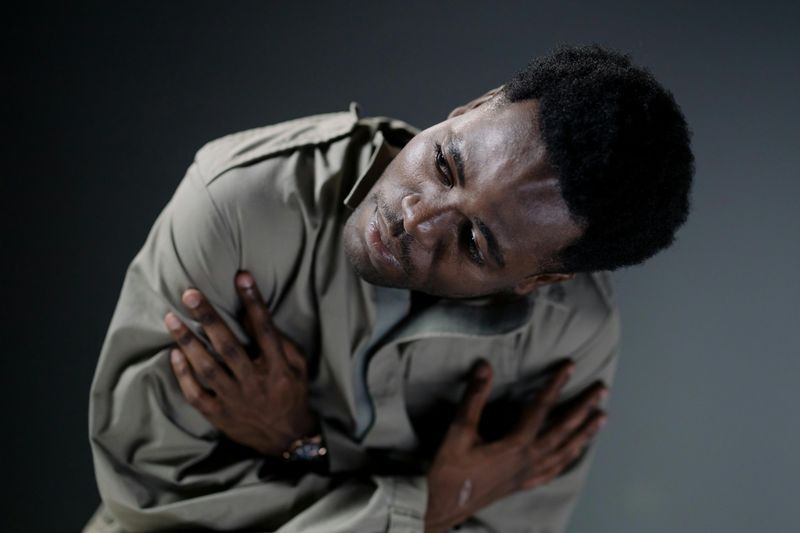12 Clear Signs of Male Fragility

Male fragility shows up when some men feel their manhood is being threatened or questioned. This happens when they react in extreme ways to protect their sense of masculinity. Understanding these behaviors can help us have better relationships and conversations with the men in our lives. Let’s look at some common signs that might indicate someone is struggling with male fragility.
1. Overreaction to Criticism

When feedback hits, fragility might be at play. Men experiencing this tend to perceive even gentle suggestions as personal attacks on their character or abilities.
The defensive shields go up immediately – maybe through angry outbursts, sullen withdrawal, or lengthy justifications. What should be a simple conversation about improvement transforms into an emotional battlefield.
This reaction stems from tying self-worth too closely to performance. Underneath the defensiveness lies a fear: “If I’m not perfect at this, what value do I have?” Recognizing this pattern is the first step toward healthier responses to helpful input.
2. Need to Dominate Conversations

Have you ever been in a discussion where one guy seems determined to have the final word on everything? This conversation-hogging happens when a man feels his knowledge or authority might be overshadowed.
Watch for the telltale signs: constant interrupting, dismissing others’ points without consideration, or dramatically shifting topics when they’re not the expert. These tactics aren’t about enriching the conversation but about maintaining position.
Behind this behavior lurks the belief that appearing unknowledgeable equals appearing weak. Many men were raised to be the authority, the problem-solver, the know-it-all. Breaking this habit requires recognizing that true strength comes from listening and learning, not just talking.
3. Discomfort With Vulnerability

“Real men don’t cry” – this outdated message leaves lasting damage. When a man struggles to express sadness, fear, or uncertainty, he’s likely wrestling with fragility around emotional openness.
Look for emotions that get transformed: sadness becomes anger, fear becomes aggression, and uncertainty becomes rigid overconfidence. Men caught in this pattern often use phrases like “it’s nothing” or “I’m fine” when clearly dealing with significant feelings.
This emotional mask-wearing creates distance in relationships and internal pressure. The irony? True strength lies in the courage to be vulnerable. Men who learn to name and claim their full emotional spectrum often discover deeper connections and personal freedom they never thought possible.
4. Excessive Sensitivity to Status

Status anxiety reveals itself when a man becomes visibly upset if he’s not given what he considers proper recognition or respect. The reaction often seems disproportionate to the situation – a minor oversight treated like a major insult.
You’ll notice constant references to achievements, titles, or possessions in everyday conversations. There’s an underlying scorekeeping mentality: who got introduced first, who received more attention, whose opinion carried more weight.
This hyperfocus on status signals insecurity about inherent worth. Men caught in this pattern often grew up believing their value comes from external validation rather than character. When respect seems tied to position rather than personhood, even small slights feel like existential threats.
5. Rigid Views on Gender Roles

Some men cling to strict ideas about what makes a “real man” or a “proper woman.” This rigidity often masks deep uncertainty about their own identity and worth.
You’ll hear phrases like “men should always…” or “no self-respecting woman would…” These statements aren’t really about others – they’re defensive boundaries protecting a fragile self-image. By creating clear rules about gender, these men create a scorecard they can pass.
The need for these rigid categories typically stems from insecurity. When someone’s sense of masculinity feels shaky, enforcing traditional gender roles provides false stability. True confidence allows flexibility and recognizes that human qualities and interests don’t need gender labels to be valuable.
6. Hostility Toward Strong Women

Watch for the subtle – or not so subtle – reactions when confident women speak up. Eye-rolling, dismissive comments like “she’s so aggressive” or jokes aimed at undermining her authority reveal fragility in action.
This hostility often increases proportionally with the woman’s expertise or authority. The competent female boss faces more resistance than her equally qualified male counterpart. Behind these reactions lies a belief system where female excellence somehow diminishes male value.
Most men showing this pattern aren’t consciously misogynistic. They’re responding to uncomfortable feelings triggered when women challenge unconscious expectations. Progress happens when men examine why capable women feel threatening rather than inspiring. Strong women don’t diminish strong men – they complement them.
7. Equating Self-Worth With Achievements

For some men, the answer to “Who am I?” becomes dangerously entangled with “What have I accomplished?” This achievement addiction creates a precarious foundation for identity.
You’ll notice constant references to career milestones, physical feats, or financial success. Conversations drift toward status markers rather than deeper connections. When these external validations face challenges – like job loss or physical limitations – emotional crises often follow.
Men caught in this pattern often grew up hearing that their value came from producing, providing, and performing. Breaking free requires developing an identity based on character, values, and relationships rather than résumé points. True security comes from knowing your worth exists independently of your latest achievement.
8. Difficulty Apologizing

“Sorry seems to be the hardest word” captures this sign perfectly. When apologizing feels like surrender, fragility is often the culprit.
Instead of straightforward “I was wrong” statements, you’ll hear defensive non-apologies: “I’m sorry you feel that way” or “If anyone was offended…” These verbal gymnastics protect the ego while appearing to take responsibility. Some men avoid the topic entirely, changing subjects or offering gifts instead of acknowledgment.
The struggle stems from equating mistakes with weakness. Men raised to believe real men never fail develop an almost allergic reaction to admitting errors. Ironically, the ability to sincerely apologize demonstrates true strength – the security to acknowledge imperfection without feeling diminished by it.
9. Defensiveness About Masculine Identity

You’ll notice overreactions to gentle teasing, discomfort with certain colors or activities labeled “feminine,” or anxiety about how other men perceive them.
These reactions happen because masculinity feels like a status that can be revoked rather than an inherent quality.
Men experiencing this fragility often grew up with narrow definitions of manhood and fear of rejection for stepping outside those boundaries. Healing happens when they recognize that genuine masculinity isn’t threatened by compassion, creativity, or emotional intelligence – it’s enhanced by these qualities.
10. Controlling or Possessive Behavior

Red flags wave when a man needs to micromanage his partner’s choices – from friendships to fashion. This controlling behavior masquerades as care but reveals deep insecurity.
Warning signs include constant checking in, disapproval of independent activities, or subtle manipulation through guilt or anger when boundaries are set. Though sometimes framed as protection or love, these behaviors actually stem from fear of inadequacy or abandonment.
Men displaying these patterns often equate control with security. The thought process goes: “If I can control the situation, I can’t be hurt or rejected.” Breaking this cycle requires building genuine self-worth that doesn’t depend on controlling others. True security comes from knowing your value remains intact even when others exercise their independence.
11. Anger as a Default Emotion

When every emotional road leads to anger, something deeper is usually happening. Many men channel sadness, fear, shame, or hurt through the more “acceptable” emotion of anger.
This emotional funneling appears as sudden outbursts, simmering irritability, or sarcastic comments when vulnerable feelings arise. Physical signs might include clenched fists, tight jaw, or aggressive posture even during minor frustrations.
Society often gives men one emotional outlet while discouraging others. Boys hear “don’t cry” but rarely “don’t yell.” The result? A restricted emotional vocabulary where anger becomes the primary expression for nearly everything. Expanding this limited range requires courage – naming the actual emotions beneath the anger and allowing them space to exist.
12. Overcompensation Through Toughness

Sometimes the loudest displays of strength reveal the deepest insecurities. Exaggerated toughness – whether through aggressive posturing, risk-taking behavior, or extreme stoicism – often signals compensation for inner doubt.
You’ll notice the pattern in the guy who can never show pain, the constant one-upmanship in stories of endurance, or the need to frame everything as a test of mettle. These displays aren’t about actual strength but about proving something to themselves and others.
This overcompensation typically stems from fear of being perceived as weak or inadequate. The internal pressure to maintain this tough facade creates its own exhausting burden. True strength includes knowing when to be gentle, when to ask for help, and when vulnerability serves better than armor.

Comments
Loading…